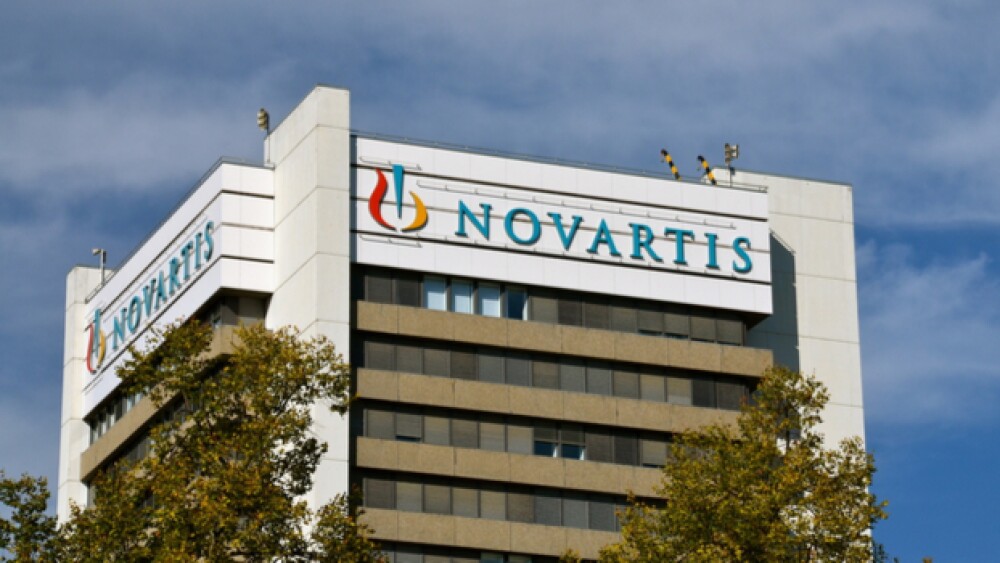Just as Novartis and AveXis’ gene therapy, Zolgensma (onasemnogene abeparvovec-xioi) for spinal muscular atrophy (SMA) is progressing toward approval, a second patient death was reported.
lucarista / Shutterstock
Just as Novartis and AveXis’ gene therapy, Zolgensma (onasemnogene abeparvovec-xioi) for spinal muscular atrophy (SMA) is progressing toward approval, a second patient death was reported.
Last week, AveXis, a Novartis company, announced interim data from its Phase III STR1VE clinical trial of Zolgensma in SMA Type 1. SMA is a severe neuromuscular disease caused by a mutation in the SMN1 gene, which codes for SMN, a protein necessary for motor neuron function. The disease is noted by the loss of motor neurons, which leads to progressive muscle weakness and paralysis. It is rare, occurring in about one in 10,000 live births. Type 1 is lethal and typically results in death by the age of two years.
Zolgensma is a gene therapy in development as a one-time infusion for SMA Type 1. It uses a virus vector to deliver a copy of the human SMN gene.
In December, the Food and Drug Administration (FDA) accepted AveXis’ Biologics License Application (BLA) for Zolgensma, with a target action date in May 2019. It is also expected to be approved in Japan and the European Union later this year.
However, on April 19, the company said an investigation is being conducted on whether a second death in a separate European trial is related to the gene therapy.
The original FDA submission was built on a clinical trial of 15 infants treated with Zolgensma. The companies expanded the clinical trial program. Last week, they presented interim data for 22 infants with Type 1 SMA at the meeting of the Muscular Dystrophy Association in Orlando, Florida. The gene therapy has encouraging results in improving motor function and skills, such as the ability to sit up.
One patient died from respiratory failure, and an investigation found it was unrelated to the gene therapy. Subsequently, the companies reported that there was another death in a different trial, this in 6-month-old patient with Type 1 SMA in Europe.
“Preliminary findings indicate this occurred in the context of a severe respiratory infection followed by neurological complications in a symptomatic SMA Type 1 patient, and was deemed possibly related to treatment by the investigator,” stated Novartis spokesman Eric Althoff. “As we learn more, we will provide further updates.”
An autopsy has been performed and the results are pending. The companies informed the regulatory authorities and clinical trial investigators.
Novartis has noted that, without treatment, it estimates that 50% of infants with SMA Type 1 will either die or need permanent breathing support by the time they reach 10.5 months of age.
Currently, the only approved drug for SMA is Biogen’s Spinraza (nusinersen). Recently, a drug-pricing watchdog organization, the Institute for Clinical and Economic Review (ICER), issued a report assessing Spinraza’s effectiveness and value compared to its price, and brought Zolgensma into the analysis, even though Zolgensma hasn’t been approved and hasn’t been priced yet.
Spinraza is priced at $750,000 for the first year and $375,000 for every year after. It is approved for all forms of SMA, types 0 through 5. Zolgensma, if approved, will only be for patients with Type 1, at least initially.
Although the ICER report had a fair number of exceptions and complicated rationales, the bottom line was they believe that Spinraza is too expensive for what it’s worth and that Zolgensma probably will be, too.
Not surprisingly, the companies disagree. Novartis questioned ICER’s methodology and noted that NICE, the UK’s drug pricing authority, have been looking at gene and cell therapies to “create more relevant models to assess potentially curative treatments.” Dave Lennon, president of AveXis, told Xconomy that Novartis is “working with payers to rethink established payment models with pay-over-time options.”
Biogen, on its part, laid out an argument for Spinraza’s benefits over Zolgensma by emphasizing that it had more long-term data on a larger pool of patients globally.
For its part, Reuters reports, Novartis has indicated its price for Zolgensma will be set in negotiations with insurers, but it believes the treatment would be cost effective at $4 million to $5 million as a one-time treatment.





